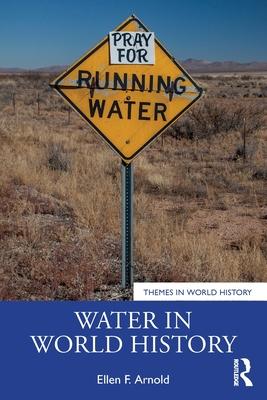This book takes a thematic approach to the global history of water, covering a wide range of human interactions with water and the ways in which it carries both life and death.
Water is one of the most common and valuable natural resources for the survival of individual people and civilizations. As the Anthropocene brings the unpredictable challenges of climate change, population growth, and global industrialization and urbanism, issues of water scarcity and availability will be ever-growing, and both the presence and absence of water can be sources of far-reaching disaster. The book argues that a deeper understanding of water's history is essential for navigating these changes. The chapters discuss water and religion, floods and disasters, water engineering and waterpower, the history of drinking water, water parks and leisure, the history of underwater exploration, and the history of drought and water scarcity. Each chapter is global in scope and is told over a broad chronology, with complementary case studies.
Water in World History is an accessible introduction to water history and is an ideal resource for undergraduate students in environmental history and world history courses.
